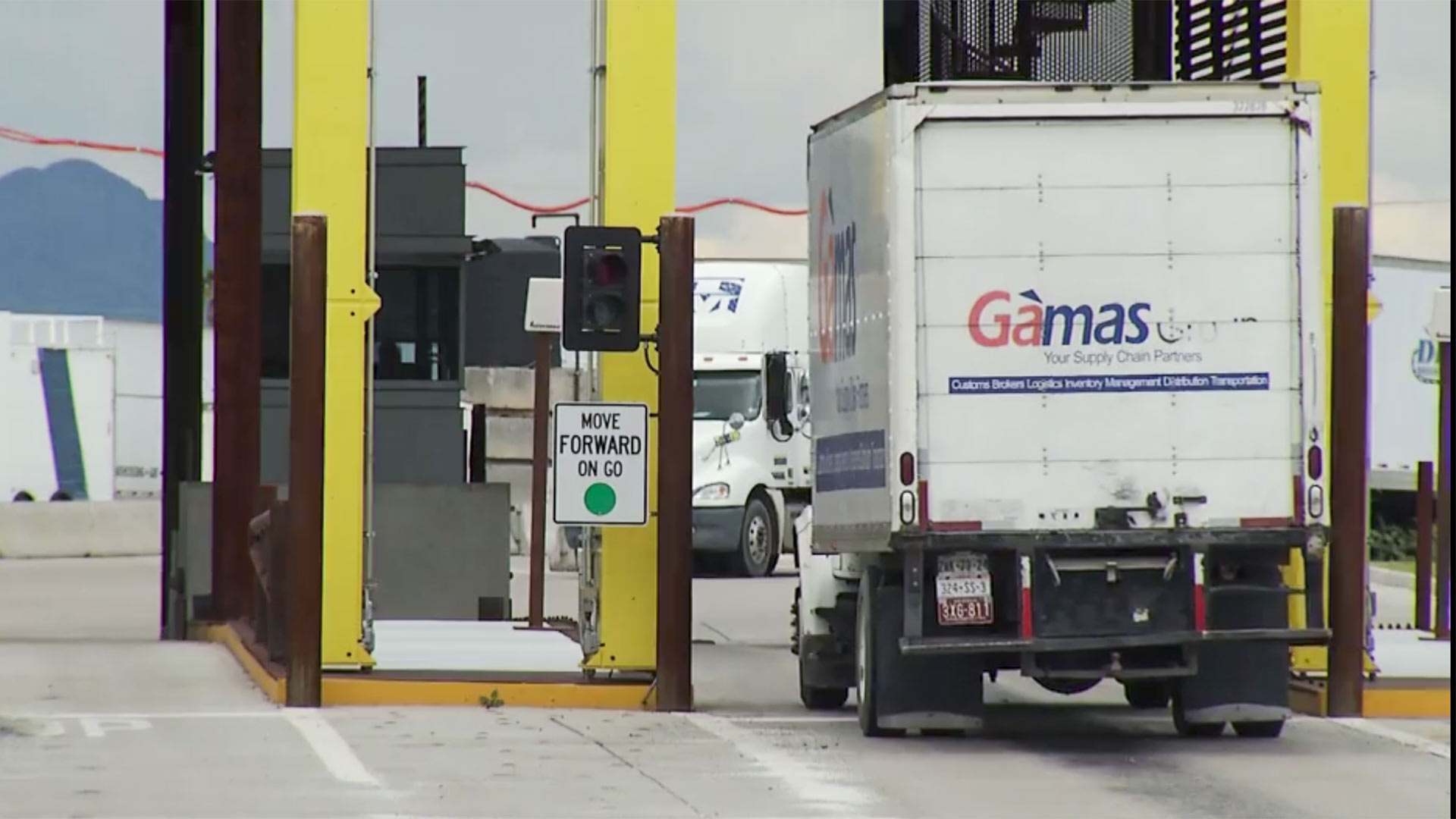 A truck at the Mariposa Port of Entry in Nogales at the Arizona-Mexico border.
A truck at the Mariposa Port of Entry in Nogales at the Arizona-Mexico border.
WASHINGTON — The Trump administration and Mexico have reached a preliminary accord to end the North American Free Trade Agreement and replace it with a deal that the administration wants to be more favorable to the United States.
President Donald Trump, in announcing the tentative agreement Monday at the White House, said a new deal would be called "the United States-Mexico Trade Agreement. Trump has frequently condemned the 24-year-old NAFTA trade pact as a job-killing "disaster" for the United States.
Still, any new agreement is far from final. The administration still needs to negotiate with the third partner in NAFTA, Canada, to become part of any new trade accord. Without Canada, America's No. 2 trading partner, it's unclear whether any new U.S. trade agreement with Mexico would be possible.
Lance Jungmeyer — Nogales, Arizona-based president of the Fresh Produce Association of the Americas, which promotes exports of Mexican-grown produce — welcomed the news, but cautiously, noting that the process is not complete until Canada is part of the agreement.
"Under NAFTA we've really created a huge trading block that actually makes all three countries more competitive throughout the world, and I think that's the key to what I would consider successful recompletion of NAFTA," Jungmeyer said.
President Trump said that he will be calling Canadian Prime Minister Justin Trudeau.
"If they'd like to negotiate fairly, we'll do that," Trump said.
Trump put pressure on Canada by threatening to tax Canadian auto imports and to leave Canada out of a new regional trade bloc.
NAFTA reduced most trade barriers between the three countries. But Trump and other critics say it encouraged U.S. manufacturers to move south of the border to exploit low-wage Mexican labor.
Talks to overhaul the agreement began a year ago and have proved contentious.
U.S. and Mexican negotiators worked over the weekend to narrow their differences. The Office of the U.S. Trade Representative said Monday that Mexico had agreed to ensure that 75 percent of automotive content be produced within the trade bloc (up from a current 62.5 percent) to receive duty-free benefits and that 40 percent to 45 percent be made by workers earning at least $16 an hour.
It remain unclear where Monday's announcement leaves Canada.
Adam Austen, a spokesman for Canadian Foreign Minister Chrystia Freeland, said: "Canada is encouraged by the continued optimism shown by our negotiating partners. Progress between Mexico and the United States is a necessary requirement for any renewed NAFTA agreement."
Austen said the Canadians had been regular contact with the NAFTA negotiators.
"We will only sign a new NAFTA that is good for Canada and good for the middle class," he said, adding that "Canada's signature is required."
The No. 2 Senate Republican, John Cornyn of Texas, hailed the "positive step" but said Canada needs to be party to a final deal. "A trilateral agreement is the best path forward," he said, adding that millions of jobs are at stake.
AP reporting from Paul Wiseman and Luis Alonso Lugo in Washington and Rob Gillies in Toronto. Darlene Superville in Washington contributed to this report.

By submitting your comments, you hereby give AZPM the right to post your comments and potentially use them in any other form of media operated by this institution.